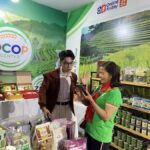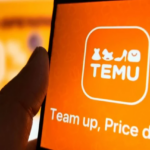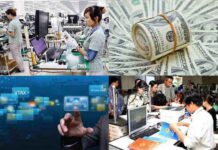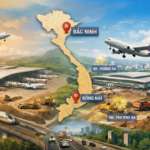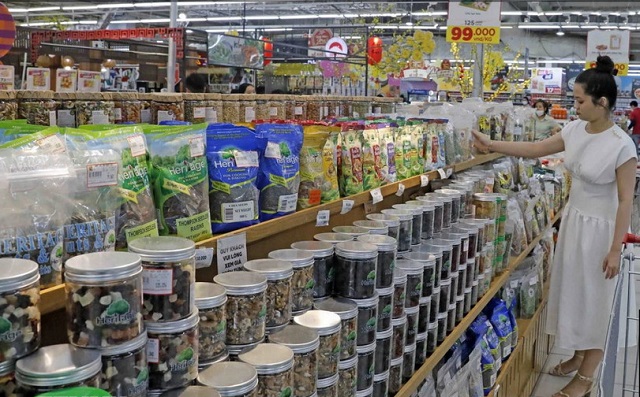
Consumers purchasing goods in a retail supermarket system. (Photo: Tran Viet/VNA)
|
On August 8, 2025, the Ministry of Industry and Trade issued Decision No. 2269/QD-BCT, officially approving the Program for Domestic Market Development, boosting domestic consumption, and promoting the movement “Vietnamese give priority to using Vietnamese goods” for the period of 2025-2027.
According to the Ministry of Industry and Trade, the Program aims to boost domestic consumption and develop modern, fast-growing, and sustainable internal trade. In addition to providing a solid foundation for domestic production, the program also contributes to building Vietnamese brands, protecting consumer rights, and ensuring legitimate interests of enterprises.
Specific targets for 2025 include a growth rate of about 10.5% in total retail sales of goods and service consumption, striving for 12%, thus contributing to the economic growth target of 8.3-8.5% as directed by the Prime Minister. The program also ensures the supply of essential goods, stabilizes the market, and prevents shortages or unreasonable price increases, especially during the year-end and Tet holidays. The program aims to reach at least 15 million consumers through communication campaigns and promotions and have the participation of more than 50,000 enterprises.
For the period of 2026-2027, the program expects to build a modern and nationally inclusive domestic trade foundation with distinct Vietnamese characteristics; develop retail models that showcase Vietnamese identity; promote the digital transformation ecosystem; and connect inter-country commercial infrastructure. The long-term goal is to rank Vietnam among the most attractive retail markets globally according to the Kearney Global Retail Development Index.
In the first year of implementation, the Ministry of Industry and Trade will focus on urgent solutions, including boosting domestic consumption; supporting production, distribution, and retail enterprises; ensuring stable supply; restructuring towards sustainability; stabilizing prices; connecting supply and demand of goods in rural, mountainous, and island areas; and strengthening inspection and protection of consumers.
The plan also prioritizes supporting enterprises in accessing preferential credit packages, reducing taxes and fees, and giving priority to enterprises with a high degree of localization, clear product origins, and green technology standards. Additionally, it encourages Vietnamese retail businesses to expand their networks in rural, mountainous, and remote areas.
In the next phase, the program will focus on completing a transparent legal framework, developing modern commercial infrastructure, and establishing B2B trading floors for key industries such as rice, coffee, pepper, tea, flowers, tropical fruits, and seafood to meet international standards.
The Department of Domestic Market Management is assigned to implement and coordinate with relevant units to ensure the highest effectiveness of the program.
Duc Duy
– 19:07 08/08/2025
The European Commission Probes the Temu E-commerce Platform
The European Commission has announced an investigation into Temu’s sales management systems and the mechanisms behind its product recommendations to consumers.
Renting a Shop for 700 Million VND a Month, How Does Starbucks Make Money to Afford Such High Costs?
“Starbucks isn’t just in the business of selling coffee; they’re selling an experience. With cozy interiors, inviting atmospheres, and the aroma of freshly brewed coffee, Starbucks has created a brand that goes beyond the beverage. While the cost of renting a space might seem daunting, requiring the sale of at least 230 cups of coffee daily, Starbucks understands that their true profit lies in something less tangible. It’s the feeling of comfort, the sense of community, and the promise of a consistent, high-quality experience that keeps customers coming back. And it’s this unique understanding of their brand that has led to their success, as they tap into something far more valuable than a cup of coffee.”
The Dark Side of Lending: How ‘Predatory’ Loan Sharks Are Luring Victims
According to Professor Dr. Tran Ngoc Tho, a member of the National Financial and Monetary Policy Advisory Council, there is a proliferation of organizations on the internet offering credit services. These organizations lure unsuspecting individuals with extremely attractive conditions, and those lacking financial literacy may find themselves at risk of falling into the trap of “black-market loans”.

